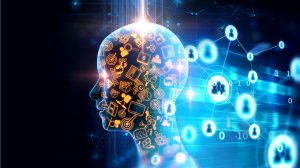In the digital era, the integration of Artificial Intelligence (AI) in various facets of life has become inevitable. One of the most impactful realms witnessing revolutionary advancements is education. AI’s transformative power is reshaping traditional pedagogical approaches, fostering personalized learning experiences, and revolutionizing the way students learn and educators teach. As we step into the future, let’s delve into the cutting-edge innovations in AI that are reshaping the landscape of education.
Personalized LearningOne of the most profound impacts of AI in education is its ability to personalize learning experiences. Adaptive learning platforms powered by AI algorithms analyze students’ learning patterns and behaviors to tailor educational content, pace, and style to suit individual needs. These platforms identify strengths, weaknesses, and learning preferences, thereby providing customized learning paths for students. This personalized approach enhances engagement, fosters self-paced learning, and ensures a deeper understanding of concepts.
Intelligent Tutoring Systems
Intelligent Tutoring Systems (ITS) leverage AI to simulate personalized, one-on-one tutoring experiences. These systems adapt to students’ learning speeds, offer immediate feedback, and provide additional resources when needed. Incorporating natural language processing (NLP) and machine learning, ITS can assess students’ comprehension levels, identify misconceptions, and deliver targeted interventions. Such systems enhance student retention and proficiency in various subjects, enabling educators to focus on individual needs within a diverse classroom environment.
Gamification and Immersive Learning
AI-powered gamification and immersive learning experiences are reshaping traditional classroom settings. Virtual reality (VR) and augmented reality (AR) technologies, combined with AI algorithms, create interactive and engaging learning environments. These technologies offer simulations, enabling students to explore complex concepts in a practical, immersive manner. AI algorithms in gamified learning platforms adapt to students’ progress, adjusting difficulty levels and content to maintain optimal engagement and motivation.
AI streamlines content creation and curation for educators, providing access to a vast array of resources. Natural language generation (NLG) algorithms assist in generating personalized study materials, quizzes, and assessments. Additionally, AI-powered content curation tools help educators discover, organize, and share relevant educational resources, saving time and ensuring content alignment with curriculum standards.
Ethical Considerations and Challenges
But, while AI brings forth remarkable advancements in education, it also raises ethical considerations and challenges. Data privacy, algorithm bias, and equitable access to AI-powered educational tools are crucial concerns. Safeguarding sensitive student data and ensuring transparency in AI algorithms are imperative to maintain trust and ethical use of these technologies in education.
The fusion of AI and education holds tremendous promise, revolutionizing traditional educational paradigms. From personalized learning experiences to intelligent tutoring systems and immersive learning technologies, AI innovations are reshaping how knowledge is imparted and acquired. However, ethical considerations and challenges necessitate a thoughtful approach towards integrating AI in education to ensure inclusivity, equity, and privacy.
As we navigate this ever-evolving landscape, embracing these innovations while addressing ethical considerations will pave the way for a more accessible, engaging, and effective educational experience for learners worldwide. The future of education is undoubtedly being shaped by the synergy of human expertise and AI-powered advancements, promising a brighter and more inclusive learning journey for generations to come.
As part of an exploration and experiment, A.I. is helping write a series of blog posts. Did you notice?


